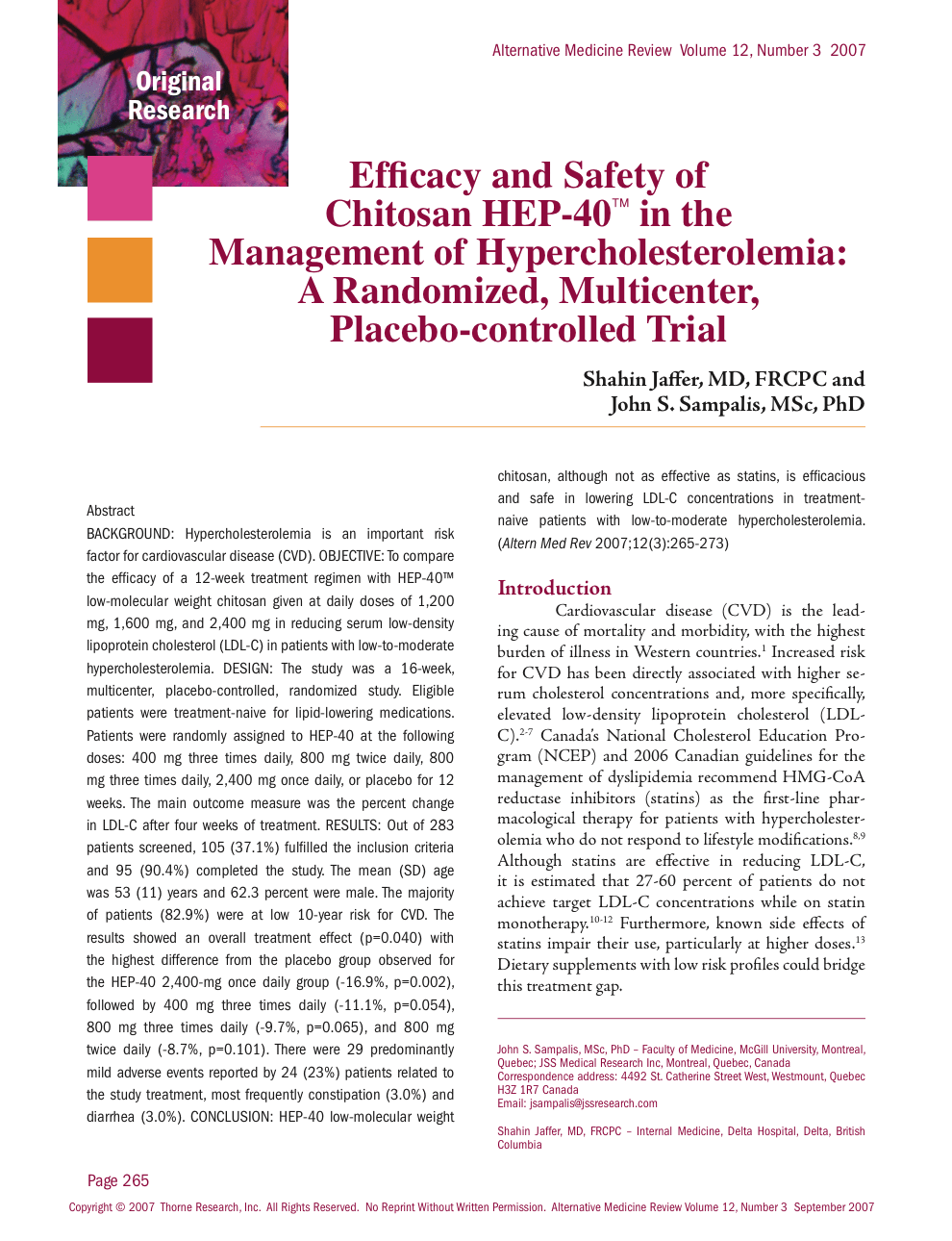Abstract
BACKGROUND: Hypercholesterolemia is an important risk factor for cardiovascular disease (CVD). OBJECTIVE: To compare the efficacy of a 12-week treatment regimen with HEP-40TM low-molecular weight chitosan given at daily doses of 1,200 mg, 1,600 mg, and 2,400 mg in reducing serum low-density lipoprotein cholesterol (LDL-C) in patients with low-to-moderate hypercholesterolemia. DESIGN: The study was a 16-week, multicenter, placebo-controlled, randomized study. Eligible patients were treatment-naive for lipid-lowering medications. Patients were randomly assigned to HEP-40 at the following doses: 400 mg three times daily, 800 mg twice daily, 800 mg three times daily, 2,400 mg once daily, or placebo for 12 weeks. The main outcome measure was the percent change in LDL-C after four weeks of treatment. RESULTS: Out of 283 patients screened, 105 (37.1%) fulfilled the inclusion criteria and 95 (90.4%) completed the study. The mean (SD) age was 53 (11) years and 62.3 percent were male. The majority of patients (82.9%) were at low 10-year risk for CVD. The results showed an overall treatment effect (p=0.040) with the highest difference from the placebo group observed for the HEP-40 2,400-mg once daily group (-16.9%, p=0.002), followed by 400 mg three times daily (-11.1%, p=0.054), 800 mg three times daily (-9.7%, p=0.065), and 800 mg twice daily (-8.7%, p=0.101). There were 29 predominantly mild adverse events reported by 24 (23%) patients related to the study treatment, most frequently constipation (3.0%) and diarrhea (3.0%). CONCLUSION: HEP-40 low-molecular weight chitosan, although not as effective as statins, is efficacious and safe in lowering LDL-C concentrations in treatment- naive patients with low-to-moderate hypercholesterolemia. (Altern Med Rev 2007;12(3):265-273)

